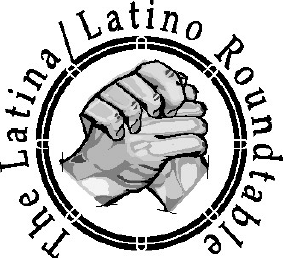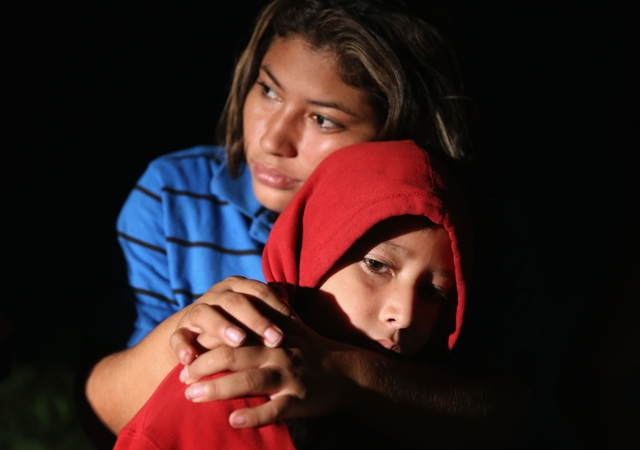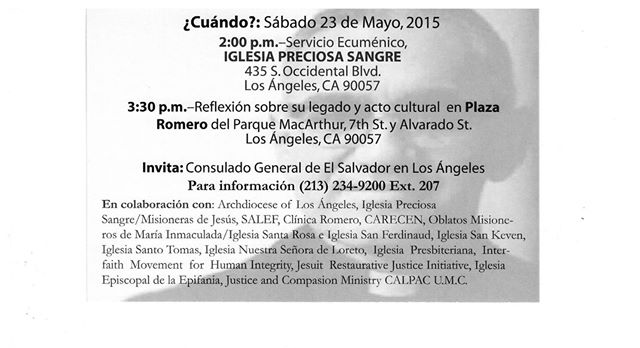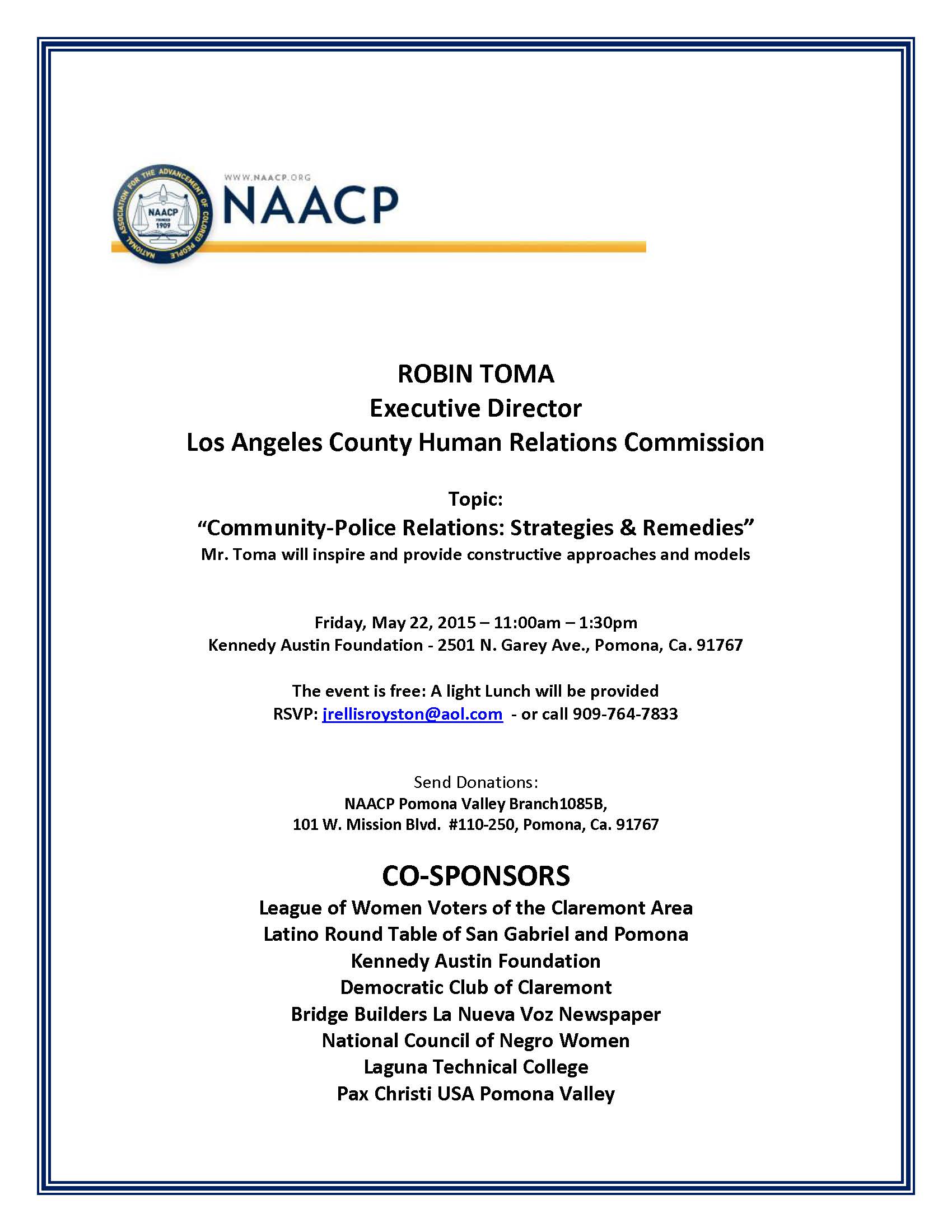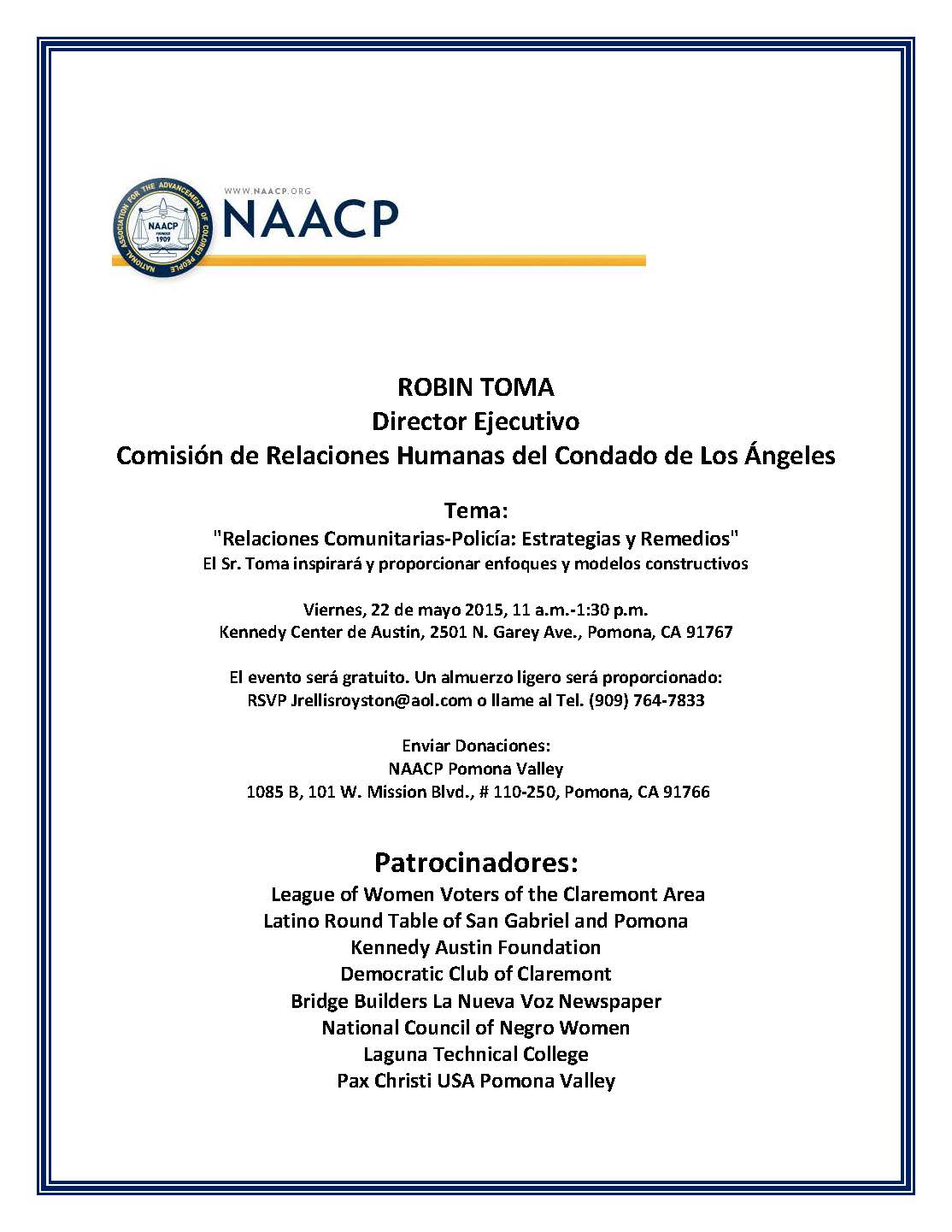You are invited to the Latino and Latina Roundtable meeting this Saturday, June 13th from 1 – 3 PM at the Pitzer College Broad Center (1050 N. Mills Ave.) in Claremont. The meeting will include updates on the status of immigrants having the right to vote, the Supreme Court case to not use the census as a means of deciding districts (objectively leaving out immigrants), the DAPA and DACA court decisions and what it means for our work, Health for All and One California in Sacramento, supporting local economic development, and plans from the Cesar Chavez Pilgrimage and Park committee. In addition to committee reports, there will be reports on Immigrant Rights Day and the El Super action. Please bring a friend, family member, or anyone who is interested in making social change.
Picket and Delegation at El Super in Covina on Thursday, June 11th
You are invited to support a Picket /Rally, and delegation in support El Super workers on Thursday, June 11th at 11 A. M. at the El Super Store (960 W. Arrow Hwy.) in Covina.
The Latino and Latina Roundtable, at its last membership meeting, agreed to support the UFCW workers in their ongoing negotiations with the El Super Corporation. The NLRB will be taking El Super to court on the week of June 8th on charges of intimidating and firing workers, withholding sick and vacation pay and for their lack to negotiate in good faith. The national office of the UFCW has called for a week of action at the UNION stores and the Latino and Latina Roundtable, together with other groups, will support this effort at the Covina Store. We invite you and ask you to invite others. Only through our efforts will this billion-dollar company be made to return to the bargaining table and to negotiate over workers’ basic needs like living wages, adequate paid sick leave, a 40-hour guarantee for full time workers, and RESPECT! Many of our members and community supporters have shopped at these stores in the past and now we are demanding that El Super treat its workers with respect.
Demócratas exigen cierre de centros de detención para familias – laopinion.com
http://www.laopinion.com/democratas-exigen-cierre-de-centros-de-detencion-para-familias
Demócratas exigen cierre de centros de detención para familias
ICE rechaza las críticas y promete mejoras
Washington, DC – Un grupo de 136 legisladores demócratas exigió este miércoles el cierre inmediato de los centros de detención para familias, al señalar que éstos no frenan la inmigración ilegal y sólo perjudican más a quienes han sido víctimas de la violencia en Centroamérica.
Como parte de una campaña de presión política, los líderes demócratas de la Cámara de Representantes señalaron en una carta enviada este miércoles al secretario de Seguridad Nacional, Jeh Johnson, que los centros de detención, dos en Texas y uno en Pensilvania, no son un sitio ideal para menores que han sido víctimas de todo tipo de abusos.DHS “no entiende”“Creemos que su departamento ha escuchado muchas de nuestras preocupaciones pero no ha entendido plenamente el grave daño que se inflige a madres y niños bajo custodia (federal). Creemos que la única solución a este problema es poner fin al uso de la detención de familias”, explicaron en la misiva.
Varios de los firmantes de la carta, entre ellos el legislador demócrata por Illinois, Luis Gutiérrez, se habían reunido con Johnson poco antes de que la Oficina de Inmigración y Aduanas (ICE) anunciara, el pasado día 13, cambios en el sistema de detención de familias, que los congresistas consideran insuficientes.
Los legisladores destacaron el testimonio bajo juramento de un experto en la materia, Luis Zayas, decano de Trabajo Social de la Universidad de Texas, quien señaló en diciembre pasado que el encierro en el centro de detenciones en Karnes ha tenido un “impacto duradero” en el bienestar físico y psicológico de las familias, aún entre las que sólo estuvieron detenidas por dos semanas.
Según los legisladores, la mayoría de los detenidos son refugiados que huyen de la violencia y persecución en sus países natales, además de haber sido víctimas de abuso sexual, secuestro, y tráfico sexual.
En ese sentido, también volvieron a denunciar la precaria situación médica de varias madres y niños detenidos por ICE en el último año, incluyendo niños con discapacidades mentales, un niño con cáncer del cerebro, y una madre con un trastorno del corazón congénito, entre otros casos graves.
En la carta, recordaron que una corte federal recientemente dictaminó que no se puede detener a solicitantes de asilo como estrategia para frenar la inmigración ilegal.ICE rechaza críticas y promete mejorasEn declaraciones a este diario, Jennifer Elzea, una portavoz de ICE, insistió en que “el bienestar de las familias detenidas, particularmente el de los niños, es de suma importancia” para la agencia federal, que además respeta el derecho de los detenidos a solicitar asilo, apelar sus casos, y acceder a la ayuda de un abogado.
“Los centros residenciales para las familias operan en un ambiente abierto que incluye salones de juego, trabajadores sociales, servicios educativos, cuidado médico integral, y acceso a abogados”, señaló Elzea, quien aseguró que ICE “explorará formas de mejorar aún más estas condiciones”.
Funcionarios del DHS y ICE llevarán a cabo reuniones en los próximos meses con las partes interesadas para escuchar las preocupaciones sobre estos centros de detenciones y realizar esfuerzos para poner en marcha los ajustes que sean necesarios, prometió.
Contradiciendo a sus detractores, entre éstos la Unión de Libertades Civiles de EEUU (ACLU), ICE no abandona el guión de que estos centros de detenciones son una alternativa “eficaz y humana” para mantener unidas a las familias mientras esperan la resolución de sus casos o su repatriación.
Según datos actualizados de ICE, hasta el pasado 20 de mayo el total de detenidos en el centro de detenciones en Dilley y Karnes, ambos en Texas, es de 1,072 y 493, respectivamente, mientras que en Berks (Pensilvania), es de 84.
De los tres centros en operaciones -el de Artesia (Nuevo México) fue clausurado el año pasado-, el más costoso es el de Dilley, donde el costo diario por cada detenido es de $313.
Le siguen el de Berks, con un costo diario de $276 por cada detenido, y el de Karnes, con un costo de $161 a diario por cada detenido.
136 House Dems send letter calling for an end to family detention
News Release
CONGRESS of the UNITED STATES
For Immediate Release: May 27, 2015
CONTACTS:
Peter Whippy (Rep. Lofgren) 202-225-3072
Douglas Rivlin (Rep. Gutiérrez) 202-225-8203
Benjamin Soskin (Rep. Roybal-Allard) 202-225-1766
Letter to Secretary Johnson from 136 House Democrats Says
DHS “Has Not Fully Grasped the Serious Harm Being
Inflicted Upon Mothers and Children”
“We believe the only solution to this problem is to
end the use of family detention”
WASHINGTON, D.C. – Today, the overwhelming majority of Democrats in the House — including Democratic Leader Nancy Pelosi (D-CA) and Democratic Whip Steny Hoyer (D-MD) – sent Homeland Security Secretary Jeh Johnson a letter (link, pdf) saying the Department of Homeland Security (DHS) “has not fully grasped the serious harm being inflicted upon mothers and children” who are being held in “jail-like” secure facilities awaiting adjudication of their asylum and immigration cases.
The letter (link, pdf), spearheaded by Reps. Zoe Lofgren (D-CA), Lucille Roybal-Allard (D-CA) and Luis Gutiérrez (D-IL), says the practice is “detrimental to mothers and children and is not reflective of our nation’s values.”
The letter calls particular attention to reports of poor or non-existent medical care for detainees, including those traumatized in their countries of origin and traumatized en route to the United States.
“We cannot hear reports of serious harm to children in custody and do nothing about it,” the letter states. “Detaining mothers and children in jail-like settings is not the answer. We have an opportunity to do the right thing and are confident that DHS has the capacity to honor our Nation’s longstanding commitment both to the protection and well-being of refugee families and to law enforcement and public safety.”
DHS dramatically ramped up the practice of detaining mothers and children in family detention centers a year ago in response to a surge of Central Americans seeking asylum from endemic violence, murder and rape. DHS claims the practice is necessary as a deterrent to other migrants and recently announced a series of measures to make conditions more humane. However, as the letter notes, a federal court has specifically disallowed the practice of detaining mothers and children as a form of deterrence and the Members of Congress who have signed the letter feel that the only humane way to detain mothers and children is to not do it.
“We believe the only solution to this problem is to end the use of family detention,” the letter states. “Children require special protections and should not be placed in jail-like settings.”
Last week, Reps. Roybal-Allard, Lofgren and Gutiérrez were joined by many House Democrats at a Capitol Hill press conferencecalling for an end to family detention. There have been many recent reports of lengthy detention, serious medical concerns and significant developmental delays in children. Opposition to family detention appears to be growing with the U.S. Conference of Catholic Bishops and several newspapers (e.g., New York Times, Seattle Times) highlighting the need to end to the practice.
# # #
Daily Bulletin: Human relations expert in Pomona discusses conflict between police, locals
Some key issues which Robin Toma (Executive Director of the L. A. County Human Relations Commission) mentioned in a Pomona Community Dialogue on Community-Police Relations on May 22 — but were not covered in the Daily Bulletin article (link to article is below):
– The Los Angeles Human Relations Commission was developed out of the Zoot Suit and Sleepy Lagoon cases back in the 1950’s.
– Throughout its history, the commission has been called on to deal with police misconduct.
– Police/Community Relations are critical – especially when communities fear the police.
– In every community, there are instances of unjust violence by police against civilians.
– Have to recognize that different outcomes are based on the color of one’s skin.
– It is important to rely on communities to pressure police departments.
– Conflict can have its positive aspects.
– Twenty-first Century training has to include changing “implicit bias.”
– Police have a lot of power – and there is a need to ensure that there is no abuse of this power.
– There is a need for civilian oversight, subpoena powers, and use of independent prosecutors.
– Finally, the solutions need to prioritize the investment in community health, education, jobs, housing, substance abuse, and gang intervention.
– Community dialogues, such as this one, are essential in starting a conversation on these issue and to develop collaboration and find common ground in getting at the roots of community violence.
Invitacion: Servicio Ecumenico – Oscar A. Romero
Presentation on Community-Police Relations: Strategies and Remedies
Pomona Valley Branch 1085B
MEDIA ADVISORY
What: Robin Toma, Executive Director Los Angeles Human Relations Commission speaking on “Community-Police Relations: Strategies and Remedies”
When: Friday, May 22, 2015, 11:00 A. M. – 1:30 P. M. 12 (speech at 12 noon)
Where: Kennedy Austin Foundation – 2502 N. Garey Ave., Pomona, CA
As part of ongoing efforts in the region to advance a community dialogue on community and police relations, a coalition of groups is sponsoring a presentation by Robin Toma, Executive Director of the Los Angeles County Human Relations Commission.
Toma’s presentation, “Community-Police Relations: Strategies and Remedies,” will directly address some of the foundations of conflict in diverse communities throughout the country and provide examples of how some cities are responding constructively with innovative models and approaches.
Toma, who was appointed by the Los Angeles County Board of Supervisors in 2000, has broad experience in the field of human relations. He was invited to be a member of the U. S. Delegation to the 2001 U. N. World Conference against Racism held in South Africa, Japanese American Leadership Delegation to Japan in 2003, and the Climate of Trust Delegation to Russia in 2005. He is the co-author of the manual: Day Laborer Hiring Sites: Constructive Approaches to Community Conflict, and authored “A Primer on Managing Intergroup Conflict in a Multicultural Workplace.”
Toma was the lead attorney in seeking redress for over 2,200 Japanese Latin Americans who were forcibly brought to the U.S. and imprisoned by the government during World War II. He is also part of an ongoing gathering of leaders known as the Executive Session on Criminal Justice and Human Rights organized by Harvard University’s Kennedy School of Government. Previously, he served as staff attorney with the American Civil Liberties Union (ACLU) of Southern California for nearly seven years, promoting human rights and building multi-ethnic coalitions to bring about institutional change. A native of Los Angeles, Toma received his bachelor’s degree in sociology and economics at the University of California, Santa Cruz, and his master’s degree in urban planning and his juris doctorate degree from UCLA.
The event will include a light lunch, is free of charge, and open to the public.
The Co-Sponsors include: League of Women Voters of the Claremont area; Latino and Latina Roundtable of the San Gabriel and Pomona Valley; Kennedy Austin Foundation; Democratic Club of Claremont; La Nueva Voz newspaper of Pomona; National Council of Negro Women; Laguna Technical College; Pax Christi USA Pomona Valley.
Summer Jobs in Alaska for Young Adults (must be 18)
We have finalized a date for on-site interviewing and hiring of young adults for a summer job opportunity in Alaska. This is hard work with long hours but both room and board are provided by the employer and young people can reasonably expect to earn and save up to $5000 over the summer season. This may be ideal for transitional-age former foster youth.
Please see details below and Thank You for your interest and support.
David McElwain, GAIN Job Services
Icicle Seafoods will be hosting 2 HIRING EVENTS on Thursday, May 14th at 9:00 a.m. and 1:00 p.m. at the GAIN site in Pomona (2249 N. Garey Avenue, Pomona, CA 91767; cross-street is Arrow Highway in the Dollar General shopping center) ). We are currently hiring Seafood Processors for the upcoming Spring/Summer season for our Western Alaska operations and expect to hire 70 to 80 applicants from the Pomona area.
We suggest arriving 15 minutes early so that we can get everyone signed in. To reserve your spot, please contact (206) 281-0332 from 8:00 a.m. to 5:00 p.m., M-F. Applicants must complete the on-line application prior to attending the event. To apply, please copy and paste the below link into a new web browser and follow the prompts.
https://rn11.ultipro.com/ICI1000/JobBoard/JobDetails.aspx?__ID=*D2ECD12C4A21E8AA
JOB DESCRIPTION:
•Process raw seafood products on-board our floating processors in remote areas of Alaska.
•Duties include sorting, butchering, cleaning, weighing, and boxing various seafood products; may also include guiding products into automated machinery, and cleaning or sanitizing the work area. Other duties may also be assigned.
•The work environment may be cold, wet, and noisy, and will require the employee to work repetitively with hands, wrists and elbows while standing for up to 16 hours per day seven days a week.
•Work availability: May to September
•All Icicle Seafoods employees are required to wear protective safety gear and are responsible for promoting and maintaining a safe working environment for self and others.
REQUIREMENTS:
• Must be available to work from May to September.
• Must be 18 years of age or older.
• Must have a basic understanding of the English language, including the ability to follow written and/or verbal instructions.
• Processing employees must be able to walk quickly to designated areas in the event of an emergency, and must be able to follow emergency instructions.
• Able to work with seafood, including various types of fish and shellfish.
• Able to lift up to 50 pounds repeatedly throughout the work shift.
• Must follow all directions and adhere to work rules.
• Able to work and live with room-mates and others of diverse backgrounds in a confined area.
• Prompt and reliable attendance is an essential function of this job.
• Required to don an immersion survival suit and be physically able to board the life raft or cross to another vessel without assistance in the event of an emergency.
• Able to perform the essential functions of the job with or without reasonable accommodation.
Daily Bulletin Article: Shifts Nudging Immigrants in California Out of the Shadows
“But more importantly, the proliferation of such laws has made it safer for undocumented immigrants to live their lives openly. Without fear. Take AB 60 — the law that allows undocumented immigrants to get a California driver’s license. ?xml:namespace prefix = “o” ns = “urn:schemas-microsoft-com:office:office” /
Since it went into effect on Jan. 2, more than 1 million applicants have applied for licenses, according to DMV data. And 268,000 licenses have been issued under the law so far. Many of those applicants have been aided by a support network of classes and seminars in places like Los Angeles, Pomona and San Bernardino.
… “These voices have now been heard. I think this is a modern civil rights movement, that it’s going to be very hard to put the genie back in the bottle,” he said.
Jose Zapata Calderon


